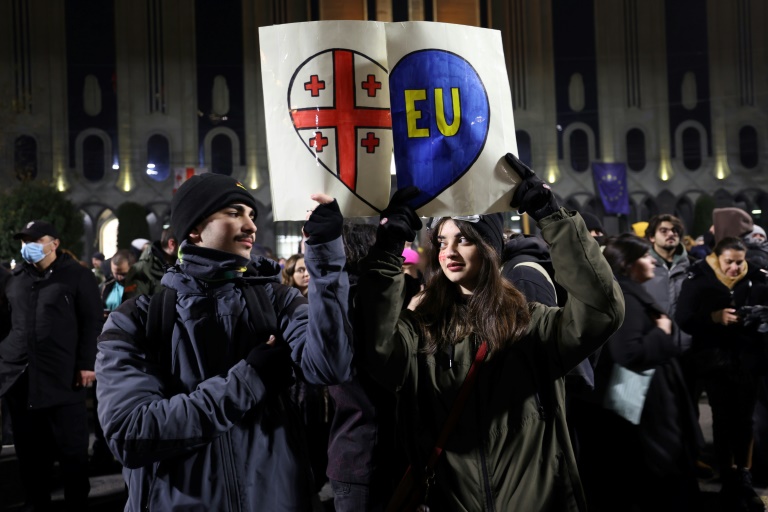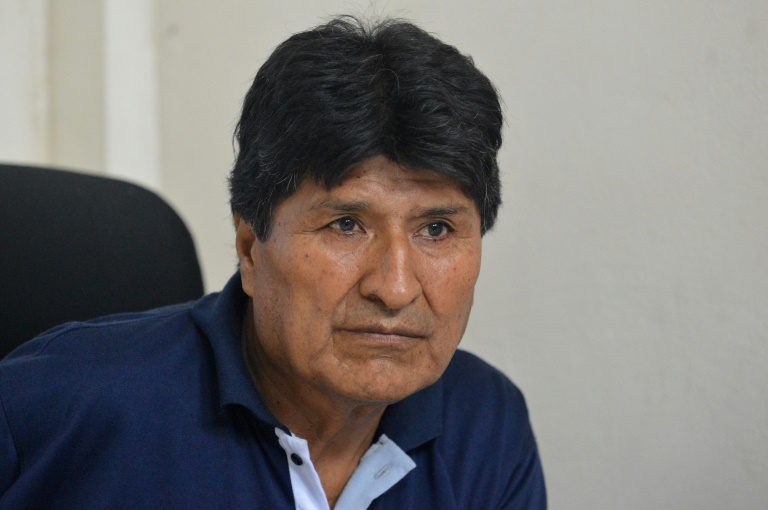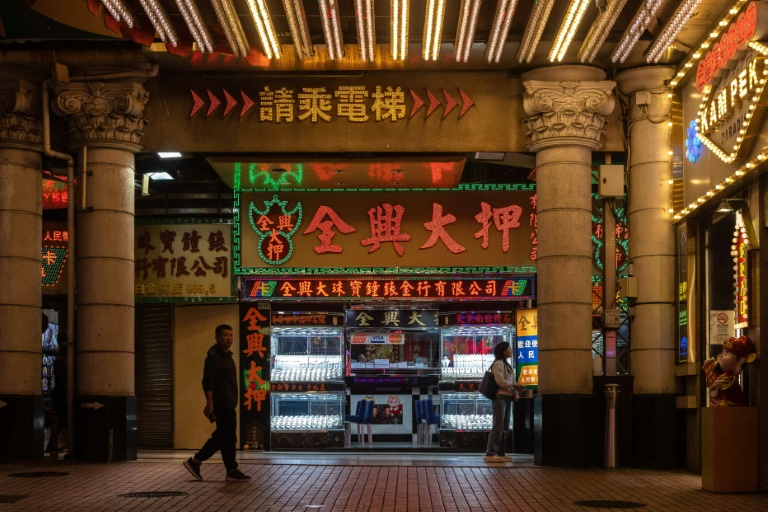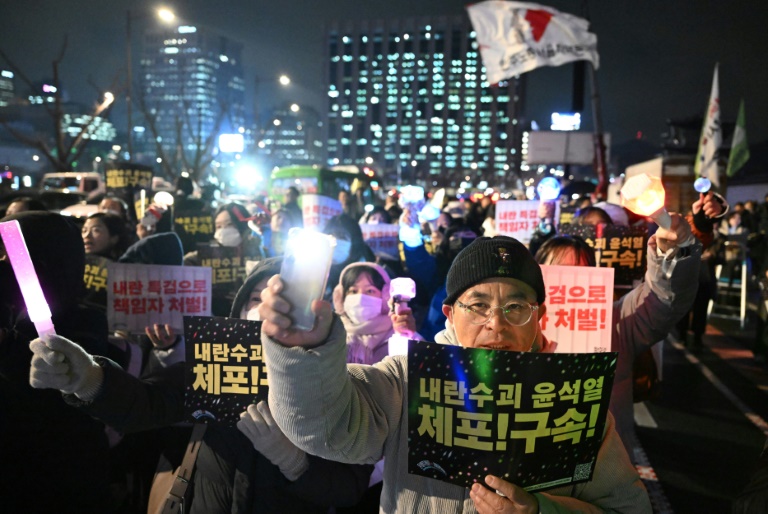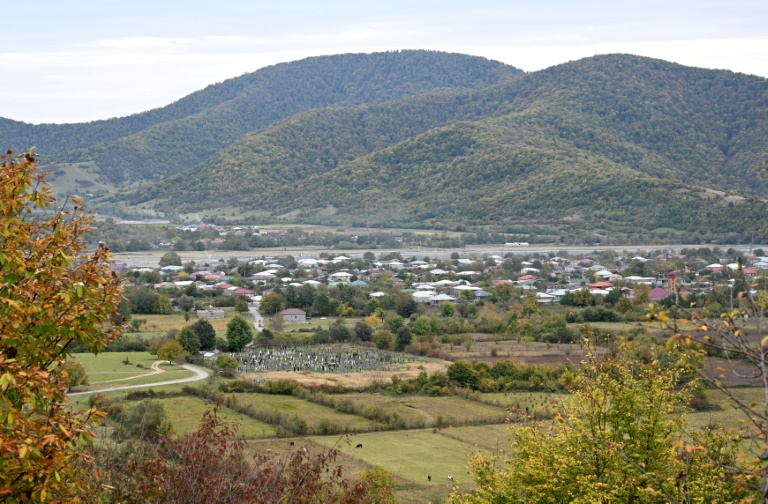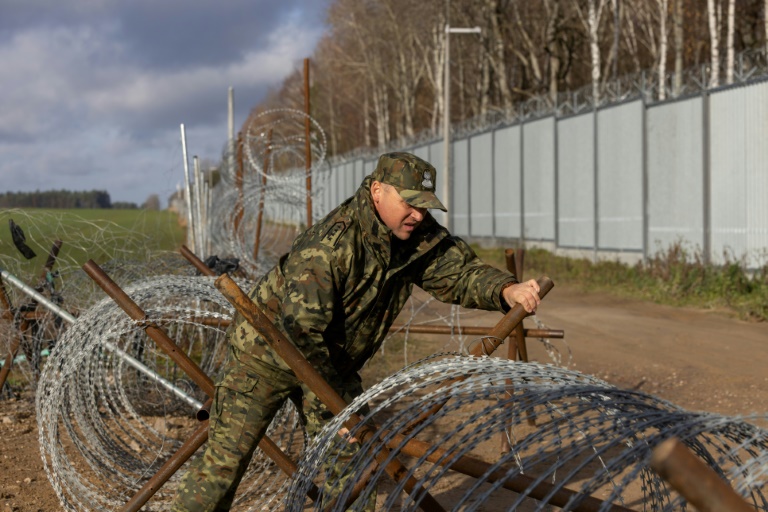Like many supporters of Georgia’s political opposition, 32-year-old Ani Bakhturidze worries the government is leading her country away from Europe and “towards Russia”.
Since the ruling Georgian Dream party claimed victory in October elections which the opposition said were fraudulent, the government has stoked outrage by delaying EU membership talks.
“We voted for European Union, we voted for freedom, we voted for human rights, and what is our government doing? It’s doing everything against it, and that’s why we’re out,” said Bakhturidze, shouting to make herself heard among thousands of demonstrators gathered in the capital Tbilisi on Saturday.
They came for the third night running to protest the decision by Georgian Dream, which they accuse of seeking closer ties with Moscow.
Wrapped in a heavy coat against the cold, Bakhturidze said she thought the opposition would win the parliamentary elections.
But Georgian Dream, which has been in power since 2012, came out on top according to results the pro-European opposition has rejected.
The outcome made Bakhturidze feel “desperate”, she said, adding that some people she knows have started talking about leaving the country.
But she plans to stay and resist, along with the thousands who have taken to the streets in the capital and elsewhere in the Black Sea country.
“We somehow find strength in ourselves”, she said, adding that otherwise, “everybody will forget about us and not speak about Georgia”.
The former Soviet republic has been rocked by waves of protests since the spring. But each time, the demonstrations have run out of steam, with no real victory for the opposition.
In April, large-scale rallies were held to protest a “foreign influence” law that opponents said mirrored repressive Russian legislation — but it was passed anyway.
Since then, further legislation restricting the rights of LGBTQ people has been enacted.
“Whenever I hear something new that they (the government) announced, I feel devastated”, said Ketevan Bakhturidze, a student who was also at the protest.
“But when I come here, I find people that think like me, that act like me, and it’s easier to cope and to fight, and it gives me strength,” she said.
Protests have also become a place to socialise for her generation, she explained, adding that she has met many of her friends while demonstrating.
“It would be really funny sometimes, if it wasn’t so sad.”
On Saturday, police cracked down violently on the demonstrators, using water cannon and tear gas to disperse them.
“Even if they beat me up, even if they arrest me, I don’t care. There’s nothing else I can do right now, and I have to come here,” said 21-year-old Bakhturidze.
Nikolozi Chargeishvili, also 21 and a landscaper, stood a few metres from a police cordon wearing a long leather coat and a colourful gas mask around his neck.
He said he feels “so strong” standing among the gathered protesters and that he thinks the authorities stand “no chance”.
Nino Barliani, 29, said she knows the rallies are unlikely to topple the government but that the opposition will eventually win.
“Hope is why I stand here today. We believe in the future,” she said.
Zack Chkheidze, a 40-year-old art professor, has been taking part in demonstrations for more than a decade.
“I don’t need hope, it’s my country. If I don’t fight, no one will.”
AFP
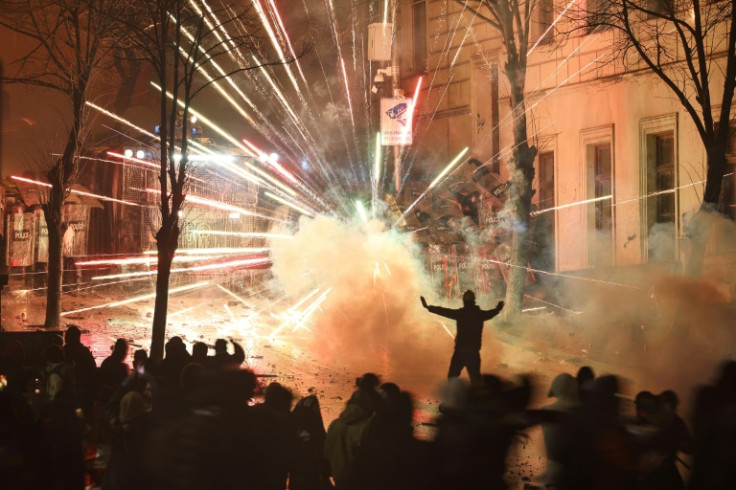
AFP
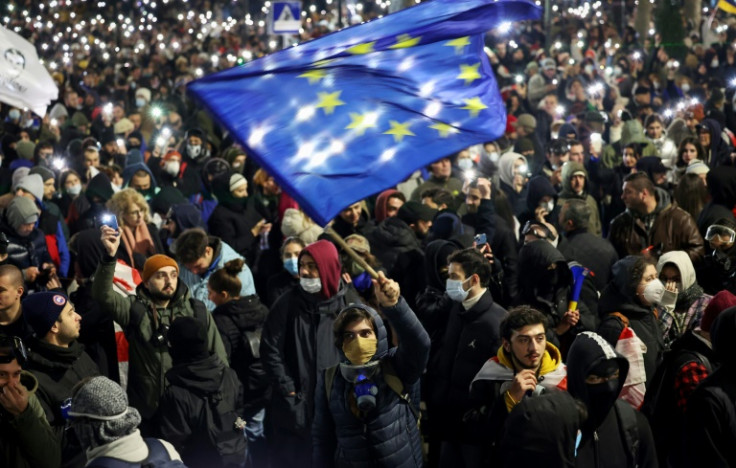
AFP

